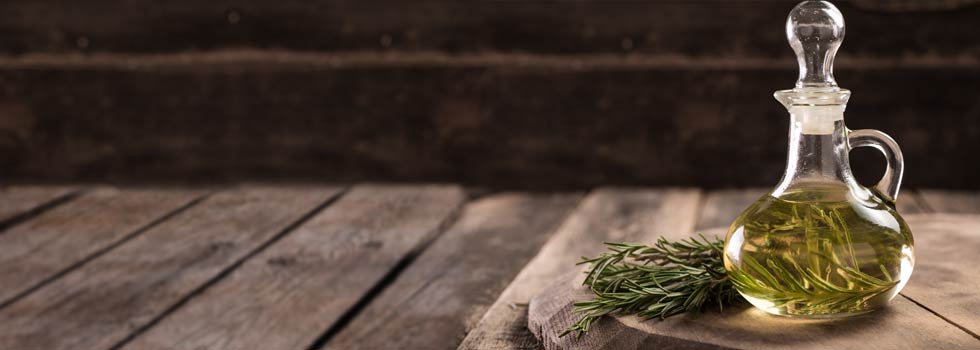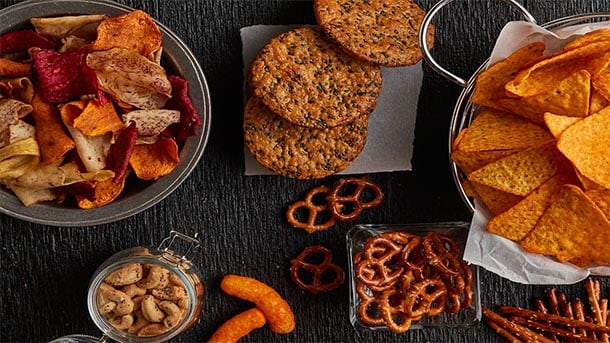Oil oxidation in foods is a major factor that leads to the reduced shelf life and quality of food products. Oil oxidation causes quality deterioration by the formation of off-flavors and color changes. Traditionally, food manufacturers have stabilized oils through addition of effective synthetic antioxidants such as TBHQ, BHT and BHA. However, consumer demands for cleaner label foods have led to the rapid removal of synthetic additives from foods. Food manufacturers have responded to the call to remove synthetic additives by (1) switching over to naturally sourced antioxidants, or (2) tailoring food formulations to include more stable oils, such as high oleic oils.
The first strategy is to substitute synthetic with naturally sourced antioxidants. This has been firmly established in the Western market and is increasing in the Asian market. In fact, natural antioxidants, such as rosemary, have been used in culinary applications for thousands of years and there have been hundreds of reports on its antioxidant activity published since the 1950’s. Today, it is the dominant commercially available herb used as an antioxidant on the market (both in Europe and the United States). Rosemary extract’s activity is mainly attributed to its predominantly oil soluble phenolic diterpenes like carnosic acid/carnosol, and the water soluble phenolics such as rosmarinic acid. Other naturally sourced antioxidants include: green tea, mixed tocopherols, acerola extract (a natural source of ascorbic acid), ascorbic acid and citric acid. Combinations of rosemary with these antioxidants can achieve even greater oxidative stability than rosemary alone due to their synergistic effects.
The second strategy is the use of more stable high oleic oils in food formulations. Compared to commodity oils, high oleic oils have increased protection against oxidation. This increased stabilization comes from modifying (by blending, plant breeding, genetic modification or enzymatic processing) the traditional fatty acid profile of the oil to include greater amounts of stable fatty acids like oleic acid. However, this increased oil protection can come at the cost of increased raw material prices and potential label declaration changes. The use of naturally sourced antioxidants in commodity oils is a more economical approach to replacing current oil with high oleic options, while maintaining or even increasing oxidative stability.
For the palm oil market, changing the fatty acid profile may not be a viable strategy given that palm already has good stability. Therefore, inclusion of alternative antioxidants is likely the most feasible strategy for oil stabilization. The use of alternative antioxidants is not without concerns, including impact on flavor and antioxidant efficacy. Minimal flavor contribution from rosemary, and rosemary-based antioxidant combinations, is critical for successful incorporation in palm oil and palm oil fried foods in Asia, where rosemary has not been traditionally used. Fortunately, rosemary extract products are available in reduced flavor varieties and the efficacy can match and even surpass those of traditional antioxidants like TBHQ. Kalsec has developed technology that allows for the removal of many of these objectionable flavor and aroma profiles. This creates opportunities for the use of rosemary extract in flavor-sensitive applications and at higher use levels to prolong shelf life, providing a natural alternative to synthetic antioxidants for cleaner labels. For more information on the application of naturally sourced antioxidants in palm oil and foods fried in palm oil, please refer to Kalsec’s recent white paper on alternative antioxidants to stabilize palm oil.
Kalsec has more than 30 years of experience in growing and processing rosemary in Southwest Texas. Being vertically integrated allows direct control over growing and plant breeding conditions. Kalsec’s pioneering development combines selectively grown and cultivated rosemary plants with proprietary extraction and processing techniques that allow for the retention of all the useful compounds. The result is the highest antioxidant activity, found only in Kalsec antioxidants.
Kalsec is also a member of the Sustainable Agriculture Initiative Platform (SAI Platform). The SAI Platform was created in 2002 by the food industry to support sustainable agricultural practices including the efficient production of safe, high quality agricultural products, in a way that protects and improves the natural environment, the social and economic conditions of farmers, their employees and local communities, and safeguards the health and welfare of all farmed species. Kalsec US grown rosemary has completed the SAI platform’s FSA (Farm Sustainability Assessment) tool and received a Silver level rating.





